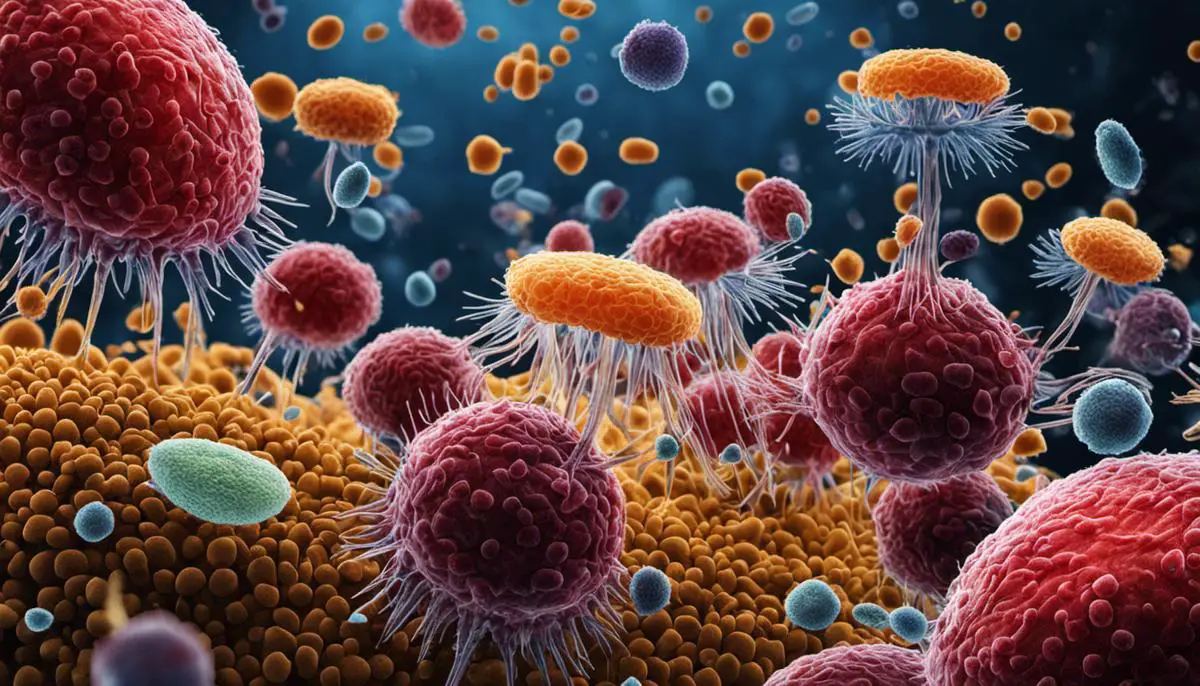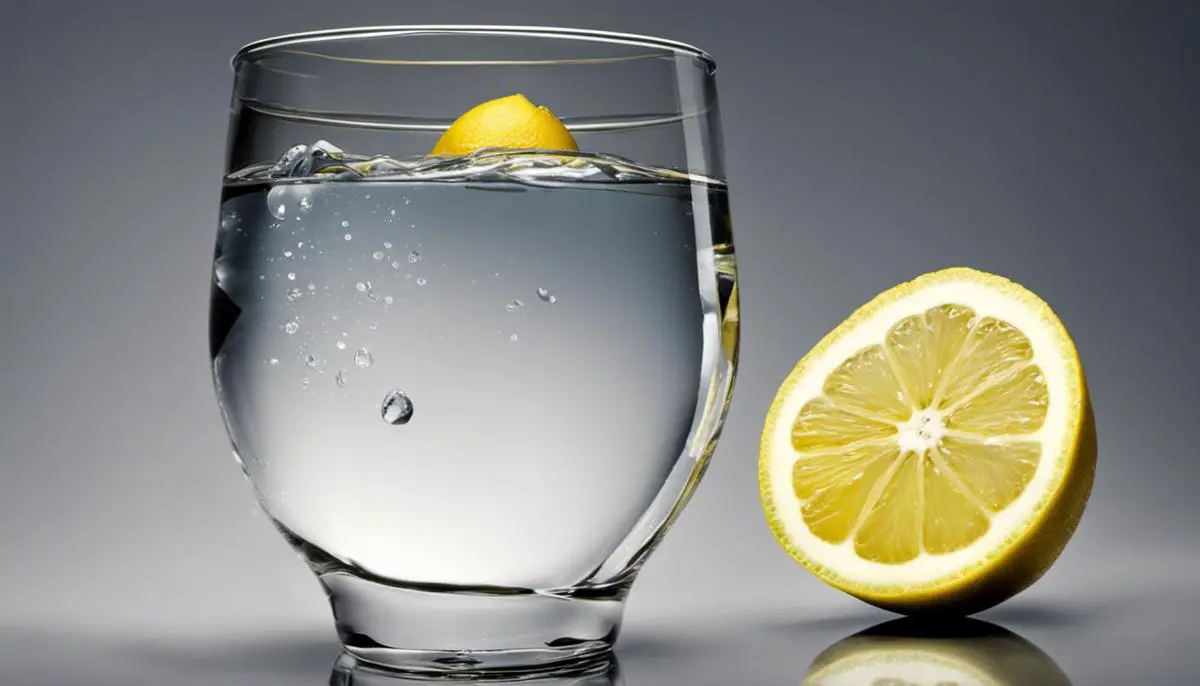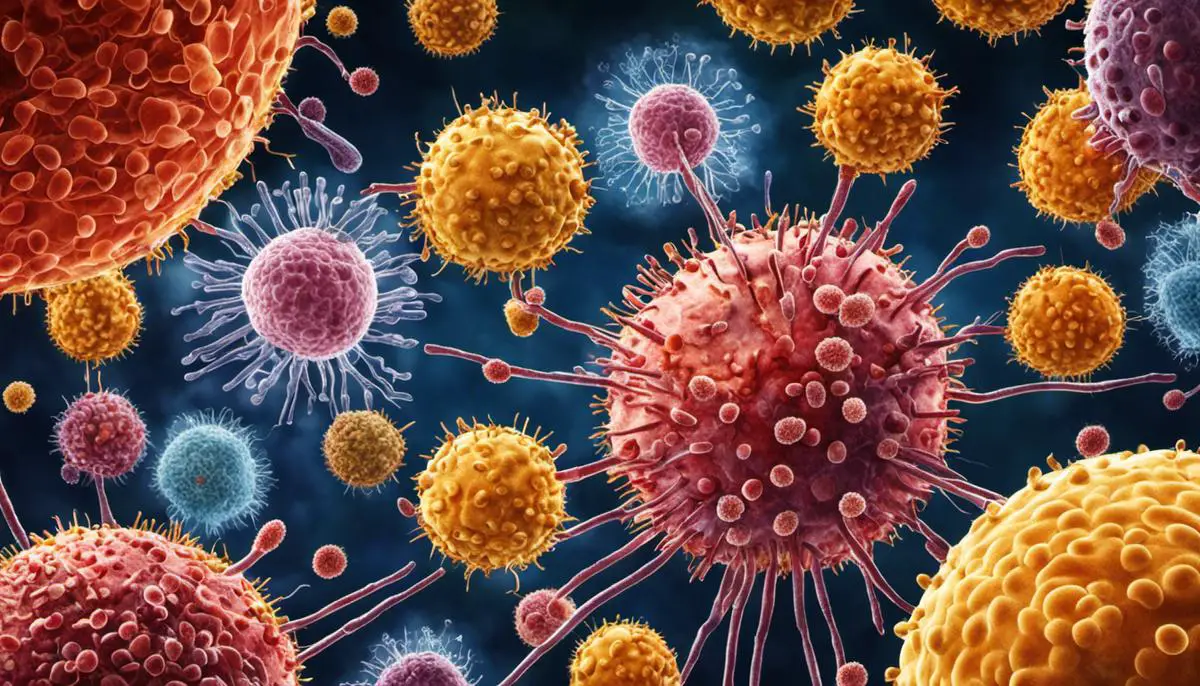Our health, well-being, and ability to thrive are intrinsically tied to the efficiency at which our immune system can guard against foreign invaders. In the intricate workings of our bodies, the immune system plays a superhero role, warding off diseases and infections in a complex web of defense mechanisms. To unravel this complex web, we must first understand the nuts and bolts of our defense system. This understanding also glows a light on the various factors that can cause a kink in our body’s immunity armor, showing us the signs of such impairments. Yet, away from the complex biology and terms, there exists a simple and powerful boost to our immune system – water. The role of water in our body is crucial, impacting key biological processes like digestion, blood circulation, and waste removal. However, the question remains, does drinking water truly boost our immunity? Let’s dive into the world of biology, hydration and the immune system to answer this question.
Understanding the immune system
The Human Immune System: Our Vital Defense Mechanism
The human immune system functions as the body’s robust defense network against a host of bacteria, viruses, and various pathogens. It’s made up of cells, tissues, and organs working synergistically to protect and sustain our well-being. When parasites and harmful pathogens invade, specialized white blood cells, known as lymphocytes, come into action. There are two types of lymphocytes: B cells reproduce in the bone marrow and craft antibodies to neutralize foreign substances, and T cells mature in the thymus and play a crucial role in directly eliminating pathogens or helping to regulate the immune response.
Complementing those robust fighters are a series of other immune cells, offering comprehensive protection. However, this intricate system can only function optimally when the body conditions are favourable. It is important to maintain a healthier lifestyle including adequate sleep, balanced diet, regular exercise and keeping good stress management techniques, which all contribute to strengthening immunity.
Factors That Can Weaken the Immune System
However, our immune system may be weakened by numerous factors, from poor nutrition and chronic stress to diseases like diabetes and cancer. Lack of sleep, unhealthy diet, and sedentary lifestyle can also have a detrimental effect. Moreover, migratory immune cells require optimal hydration to function properly. Prolonged dehydration can take a toll on the body’s defense mechanism, thereby increasing vulnerability to disease.
One crucial but often overlooked factor that can significantly impact the immune system is hydration. The hydration status of the body can influence the performance of immune cells and the production of cytokines, a type of protein that regulates the immune response. Additionally, mucous membranes in the respiratory tract, which serve as the body’s first line of defense against pathogens, often require adequate hydration to function optimally.
Does Drinking Water Strengthen Your Immune System?
Hydration is fundamental to the effective functioning of your immune system. It hydrates the lymph, a body fluid that moves white blood cells and nutrients throughout your body, fueling your immune system in the process. Staying hydrated helps ensure your mucous membranes remain damp, providing a barrier against foreign substances such as viruses and bacteria. Plus, sufficient water consumption helps toxin removal from your body.
While drinking water in itself might not be the magic solution to immune system health, it significantly aids overall bodily health and the seamless operation of your immune system. Hydration sets up the optimal conditions for your immune system to work effectively.
Conversely, dehydration can inhibit the function of your immune system. It slows down the flow of lymph, impairs cell nutrition, and makes it more difficult for your body to fight off illnesses. Drinking too much caffeine or alcohol, both promoting excessive urine production, can result in dehydration, which subsequently weakens your immunity.
In conclusion, proper hydration is an easy but impactful way to support your immune system. Adequate hydration doesn’t come from water alone–it can also come from eating generous amounts of fruits and vegetables, which are rich in both water and vital vitamins and minerals. Making a habit of staying hydrated should be at the foundation of your efforts to take care of your immune system and overall health.

The role of water and hydration to overall health
A Deep Dive into Water’s Role in Our Bodies
In the grand scheme of life, water is a powerful force. It is crucial to every form of life, particularly in the human body. Water is more than just a thirst quencher–it’s involved in numerous essential biological processes that keep us alive and functioning optimally.
Many of our body’s metabolic processes depend on water, notably digestion. Your digestive system needs water to break down food, absorb nutrients, and get rid of waste. Water is not only the platform for various enzymatic and chemical reactions but also enables nutrient transportation and waste expulsion from your body.
Additionally, water is a major component of blood, helping in maintaining proper blood circulation. This vital liquid transports oxygen and nutrients to your cells, makes chemical reactions (including metabolism) in cells possible, cushions your joints and organs, regulates body temperature, and even flushes out undesirable contaminants from your body.
The Detrimental Effects of Dehydration
Dehydration, or the lack of sufficient water in the body, can have serious health consequences. It hinders the normal functioning of the body, and if left untreated, can lead to severe health conditions. Typical symptoms include thirst, dry mouth, fatigue, dizziness, and reduced urination. Chronic dehydration could lead to kidney stones, urinary tract infections, and even kidney failure.
Effects of dehydration also extend to the immune system. A dehydrated body struggles to transport nutrients and oxygen, inhibiting the cells from functioning optimally. This can compromise the immune system, making the body more prone to infections and diseases.
The Connection between Hydration and Immunity
Although it’s not typically made explicit, maintaining proper hydration is fundamentally associated with good immune health. When we stay well-hydrated, our bodies can more effectively flush out toxins and harmful bacteria that might lead to sickness, primarily through urination. Moreover, being adequately hydrated ensures that all our bodily systems, including our immune system, can function at their optimal levels.
Proper hydration is especially vital for the proper functioning of the lymphatic system, a crucial element of our immune response. This system creates and transports lymph, a fluid filled with white blood cells that fight off infection. If we don’t drink enough, this process can become sluggish, hampering the immune system’s response time.
By making sure you drink an adequate amount of water each day, you’re giving your immune system the best shot at functioning effectively. This becomes particularly crucial when your system needs to bounce back from an illness or fight off invading germs.
So even though water isn’t a magic immunity booster, it’s evident that maintaining a good hydration level is pivotal in fostering a strong immune response.

Drinking water as a boost to the immune system
Delving Deeper into Hydration and Immunity
Our immune system is essentially a complex network of cells, organs and tissues that collectively work to shield our body from harmful microbes or substances. Preserving the strength and efficiencies of this system is paramount to our wellbeing. There’s a range of factors that can influence how well our immune system works, including our diet, exercise habits, stress levels, and, importantly, our hydration levels.
Water is integral to the human body, comprising approximately 60% of an adult body’s weight. It’s involved in a myriad of crucial bodily functions, from regulating body temperature to aiding digestion and enabling waste excretion.
How Drinking Water Boosts Immunity
Drinking sufficient water supports your immune system in several ways:
- Detoxification: Water aids the kidneys in flushing out toxins from our body, thus reducing the load on the immune system.
- Oxygenation: Water is necessary for the transport of oxygen and nutrients to all parts of our body, including the immune cells.
- Lubrication of Mucus Membranes: Sufficient water consumption ensures that the mucus membranes in our throat and nose are well-lubricated, which helps to trap and eliminate pathogens before they cause harm.
- Digestion: Water aids in digestion, preventing constipation and supporting the health of the gut, which houses a significant portion of our immune cells.
Scientific Studies and Expert Views
Several studies have highlighted the importance of hydration for immune function. However, research directly linking water intake to enhanced immunity is limited. A study published in the European Journal of Nutrition in 2020 suggested that even mild dehydration could impair immune function.
Professor Neil Walsh from Liverpool John Moores University offered some insight on this topic. He stated that staying well-hydrated could aid in maintaining salivary flow, which helps to keep the mouth and throat moist. This moisture can trap pathogens, preventing them from entering the body.
Practical Tips on Proper Hydration and Debunking Misconceptions
The recommended daily water intake varies depending on factors like age, sex, physical activity, and climate. As a general rule, men should aim for about 3.7 liters, and women should try for around 2.7 liters a day.
There is a common misconception that drinking eight glasses of water a day is essential for everyone. While this goal might work for some people, it is not a requirement for everyone. Instead, listening to your body’s thirst signals is a more effective guideline.
Note that fluids can come from beverages like tea, coffee, milk, and juice, as well as from foods with high moisture content such as fruits, vegetables, soups, and stews.
In conclusion
While drinking a sufficient amount of water is beneficial to the overall body function and can indirectly support immune health, it is not by itself a panacea for an ailing immune system. A balanced diet, regular exercise, adequate sleep, and maintaining a healthy lifestyle are equally, if not more, important for strengthening immunity.

Indeed, drinking water is essential not just for our overall health but also for boosting our immune system. When we prioritize proper hydration, we enhance our body’s ability to fight off diseases, strengthen our immunity, and ultimately promote better health. However, it’s important to comprehend that maintaining good hydration isn’t just about water quantity but about consistency and quality as well. While water isn’t a magical cure-all, undeniably, it plays a significant role in maintaining optimal health. So, make it a habit to keep your body well-hydrated. After all, in the grand scheme of your health, the act of drinking water isn’t just about quenching thirst but about bolstering a barrier against disease.
